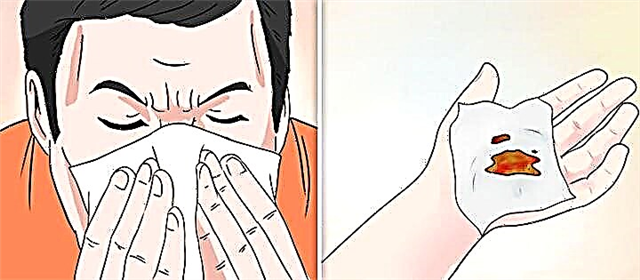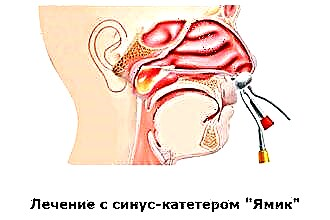More and more people, especially young people, are beginning to realize the harmful effect on the body of such a habit as smoking. There is massive propaganda on this topic today, a healthy lifestyle is becoming fashionable, and cigarettes have fewer and fewer active adherents. But many are disappointed that the constant companion of smokers, cough after quitting smoking does not go away instantly, but continues for several weeks, or even months. And sometimes it even intensifies in the first days. Why does this happen and what to do to quickly stop coughing?
Mechanism and symptoms
 Any cough is a reflex response of the body to irritation of the respiratory system. And there are more than enough irritating factors when smoking tobacco. The temperature at the end of a cigarette reaches 700-800 degrees, and of tobacco smoke 70-80 degrees. This is significantly higher than the maximum safe for mucous membranes - 60. This means that long-term smoking experience is a guarantee of constant irritation and thinning of the mucous membranes, which are trying to protect themselves by intensively producing thick sputum.
Any cough is a reflex response of the body to irritation of the respiratory system. And there are more than enough irritating factors when smoking tobacco. The temperature at the end of a cigarette reaches 700-800 degrees, and of tobacco smoke 70-80 degrees. This is significantly higher than the maximum safe for mucous membranes - 60. This means that long-term smoking experience is a guarantee of constant irritation and thinning of the mucous membranes, which are trying to protect themselves by intensively producing thick sputum.
Sputum constantly flows down the back wall of the larynx, irritates it and, when swallowed, enters the stomach, taking with it the toxins contained in tobacco smoke. Now the stomach lining is irritated, especially if the first cigarette is smoked on an empty stomach. Gastritis gradually develops and ulcers appear. The acidity of the gastric juice increases, and when it enters the esophagus, it causes irritation and heartburn. The cough gets worse.
During sleep, phlegm flows into the bronchi, stagnates there and clogs breathing. The person begins to snore, cough at night, wake up from lack of air.
With deep inhalation of smoke (and this is inherent in all experienced smokers!), Heavy metals and resins enter the lungs, which remain there, damaging their structure and creating permanent foci of inflammation. The characteristic symptom of this extremely unfavorable lung condition is coughing again.
We have described in such detail the mechanism of damage to the respiratory organs during smoking, so that it is clear where the symptoms typical for a smoker's cough come from, and why he cannot go away instantly after throwing the last cigarette into the trash can.
 There are also other features:
There are also other features:
- the most severe coughing attacks occur in the morning, immediately after waking up - these are the bronchi and lungs trying to get rid of the poisoned mucus accumulated overnight;
- the presence of a large amount of sputum - typical for smokers with little experience, whose mucous membranes are not too damaged;
- heavy and bad breath - toxins accumulate in saliva, on the mucous membranes of the oral cavity, a strong smell can be given by a sick stomach;
- a coughing attack intensifies with a deep breath - this is how the lungs resist the return of toxic mucus into them;
- persistent shortness of breath is a symptom of chronic bronchitis and oxygen deprivation, which are often present in smokers.
For the cough to go away forever, all damaged organs must be fully restored. And this takes a lot of time. Therefore, it is difficult to predict when the cough will pass after a complete quitting smoking, and how long the rehabilitation period lasts.
When the cough goes away
 In a healthy person with a short smoking history, the cough disappears on average in 2-4 weeks. To a large extent, it also depends on age - after all, a young organism that quit smoking recovers much faster than a person of middle and, especially, older age. In people over 50, the cough can take up to several months, and then provided that there are no chronic diseases.
In a healthy person with a short smoking history, the cough disappears on average in 2-4 weeks. To a large extent, it also depends on age - after all, a young organism that quit smoking recovers much faster than a person of middle and, especially, older age. In people over 50, the cough can take up to several months, and then provided that there are no chronic diseases.
If a person who smokes earlier suffers from heart failure, diseases of the gastrointestinal tract, allergies, chronic broncho-pulmonary diseases, then the cough will still remain, since its main cause will not be eliminated. In this case, just giving up the bad habit is not enough. You will have to undergo a diagnostic examination and a course of treatment, and when the cough disappears as a symptom, we can talk about a stable remission or complete recovery.
Chronic pneumonia and bronchitis, which are very frequent companions of smokers, will also have to be treated. Since the respiratory organs are constantly damaged, they cannot normally defend themselves against pathogens entering them. And in general, heavy smokers have much lower immunity than non-smokers. Many people note that after quitting smoking, they began to suffer less from respiratory diseases, which means that the immune system also begins to recover.
 It strongly depends on how quickly the cough passes when quitting smoking, on the number of cigarettes smoked earlier in the day. If 5-6 cigarettes do not damage the mucous membrane too much, but rather dry it out and irritate it, giving time to partially recover, then a pack a day is a constant intoxication of the body plus chronically burnt bronchial mucosa with degraded and almost non-functioning hairs designed to cleanse mucus and protection against bacteria.
It strongly depends on how quickly the cough passes when quitting smoking, on the number of cigarettes smoked earlier in the day. If 5-6 cigarettes do not damage the mucous membrane too much, but rather dry it out and irritate it, giving time to partially recover, then a pack a day is a constant intoxication of the body plus chronically burnt bronchial mucosa with degraded and almost non-functioning hairs designed to cleanse mucus and protection against bacteria.
If, after quitting smoking, your cough worsens in the first two weeks, do not be alarmed. This is a process of active cleansing of the lungs and bronchi. You just need to relieve seizures with expectorant syrups or folk remedies and not return to the addiction.
But when the cough lasts longer than 1-2 months, then it's time to see a doctor. This is most likely a symptom of another medical condition, not necessarily a consequence of cigarette smoking.
Traditional methods
 To help the body quickly get rid of tar, toxins and other nasty things that got into it with tobacco smoke, you can use proven folk remedies. They do not give an immediate effect, but after 1-2 weeks of regular use, the improvement in the condition becomes noticeable:
To help the body quickly get rid of tar, toxins and other nasty things that got into it with tobacco smoke, you can use proven folk remedies. They do not give an immediate effect, but after 1-2 weeks of regular use, the improvement in the condition becomes noticeable:
- Warm milk. Even if nothing else is added to it, it perfectly softens coughs and neutralizes toxins. No wonder it was given earlier to those who worked in "harmful" industries. You can add a little honey, a pinch of baking soda, or ghee if you like. Drink in small sips up to 2 glasses a day.
- Onion syrup. An excellent expectorant that can compete with any drugstore medicine. Peel two large onions, chop, cover with a glass of sugar. When the onions are juiced, simmer over very low heat until an amber syrup is formed. Strain the syrup, you can add a tablespoon of honey. Take a teaspoon several times a day.
- Eggnog with propolis. Suitable for those who are not allergic to bee products (asthmatics are not allowed!). Separate the egg yolk from the protein, beat with a tablespoon of natural honey until white foam, gently add 15-20 drops of propolis alcohol tincture into it. Eat a little, cook just before use. Apply no more than 2 times a day.
- Special tea. There is a special recipe for a quick sputum discharge. Pour a tablespoon of dry wild rosemary and St. John's wort into a thermos, pour 0.5 liters of boiling water. Close the lid and leave for 15 minutes. Strain the liquid, put a teaspoon of high-quality black tea in a teapot and pour infusion. Drink warm when the tea leaves are infused.
 Dandelion juice. It also perfectly helps the discharge of phlegm. It must be squeezed out of the previously cleaned roots of the plant and mixed with tea made from lemon balm, mint, thyme or sage at the rate of 20-30 ml of juice per glass of tea. You can add honey to taste.
Dandelion juice. It also perfectly helps the discharge of phlegm. It must be squeezed out of the previously cleaned roots of the plant and mixed with tea made from lemon balm, mint, thyme or sage at the rate of 20-30 ml of juice per glass of tea. You can add honey to taste.- Herbal teas. You need to drink constantly.They warm the throat, relieve inflammation, many plants have an anti-inflammatory and expectorant effect, and are able to neutralize toxins. Sage, horsetail, chamomile, lungwort, thyme, linden, wild rose will do.
- Birch buds. Excellent anti-inflammatory agent. Removes irritation of the larynx, soothes even a strong cough, promotes rapid recovery of mucous membranes. Melt 70 grams of ghee in a water bath, add a tablespoon of birch buds. Leave on low heat for an hour. Strain the oil, when it cools a little, mix with the same amount of honey. Take a teaspoon several times a day.
If you don't want to mess around with folk recipes, you can buy plant-based expectorant syrups at the pharmacy and take it according to the instructions.
In addition, you must avoid too active physical activity, drafts, sudden temperature changes, very hot or cold food, too spicy or acidic foods. That is, to do everything so as not to provoke additional irritation of the larynx.
E-cigarettes
 A frequent smoker thinks that it is enough to simply switch to the fashionable electronic cigarettes now, and the cough will also disappear. There is some truth in this, but not everything is so simple. It is not only tobacco smoke and the tar contained in it that cause a smoker's cough. Nicotine provokes a sharp narrowing of blood vessels, which often causes spasms, including spasm of the bronchi, the reaction to which is a violent cough. Therefore, when smoking electronic cigarettes, there will also be a cough.
A frequent smoker thinks that it is enough to simply switch to the fashionable electronic cigarettes now, and the cough will also disappear. There is some truth in this, but not everything is so simple. It is not only tobacco smoke and the tar contained in it that cause a smoker's cough. Nicotine provokes a sharp narrowing of blood vessels, which often causes spasms, including spasm of the bronchi, the reaction to which is a violent cough. Therefore, when smoking electronic cigarettes, there will also be a cough.
In addition, many chemical flavors and flavorings are added to them, to which allergic reactions often develop, and they also cause coughing.
To turn smoke into steam, glycerin is used, which, when consumed in large quantities, clogs the lungs no worse than harmful tobacco tar. It's just less toxic. So the only way to get rid of a smoker's cough forever is to completely and unconditionally quit smoking in any form!

 Dandelion juice. It also perfectly helps the discharge of phlegm. It must be squeezed out of the previously cleaned roots of the plant and mixed with tea made from lemon balm, mint, thyme or sage at the rate of 20-30 ml of juice per glass of tea. You can add honey to taste.
Dandelion juice. It also perfectly helps the discharge of phlegm. It must be squeezed out of the previously cleaned roots of the plant and mixed with tea made from lemon balm, mint, thyme or sage at the rate of 20-30 ml of juice per glass of tea. You can add honey to taste.

